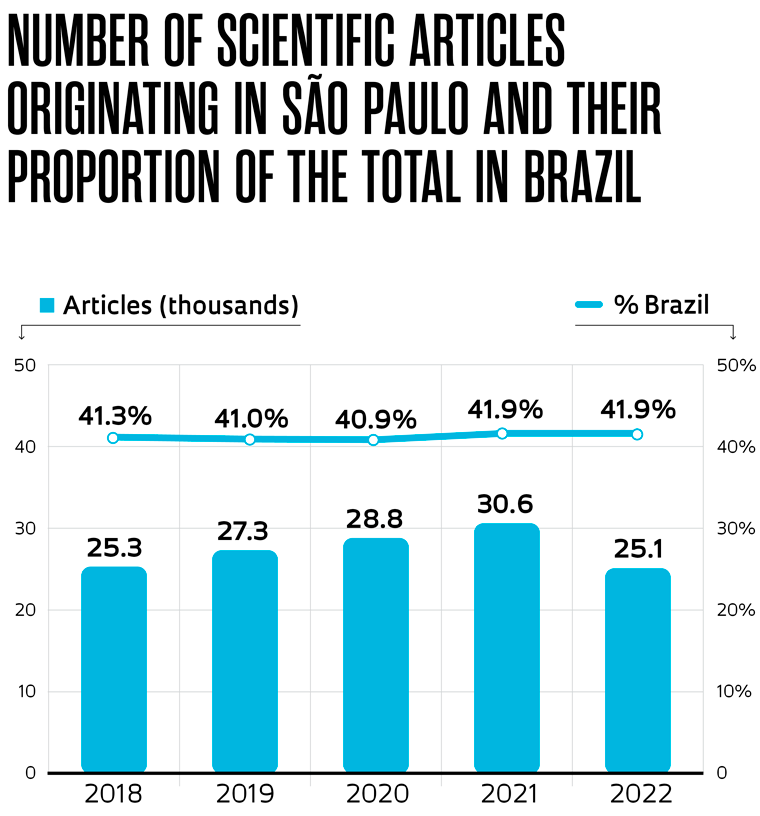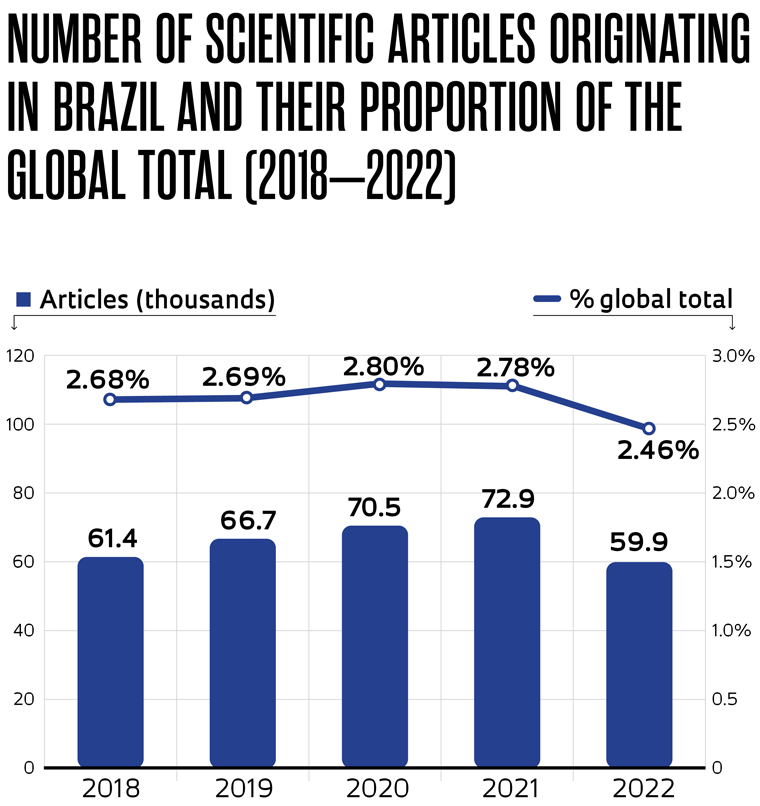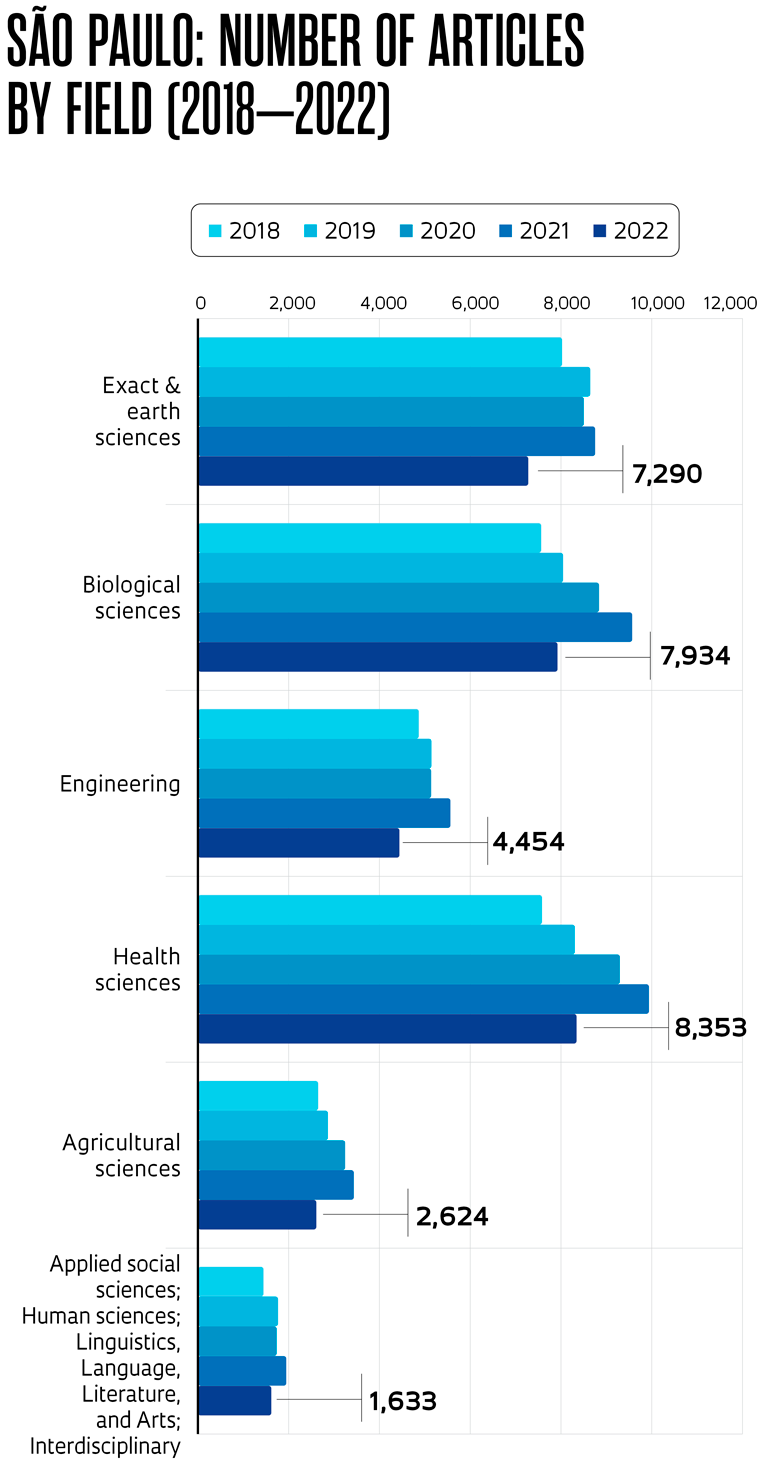- In São Paulo, the drop occurred in all major fields of knowledge in 2022, but less intensely in the health sciences (-12%)
- In contrast, the decline was most significant in agricultural sciences (-23.9%). In other fields, the rate varied around the general average of -18% to -17%
- One factor that may have contributed to the change was a decrease in the number of PhDs awarded during the pandemic (see Pesquisa FAPESP issue nº 313). This decrease likely resulted in a lower number of theses and scientific articles being written, which was only reflected in the data in 2022, two years after the drop in the number of doctorates
Notes (1) Published papers indexed by the Web of Science/Clarivate databases as “Articles,” “Proceedings Papers,” and “Reviews.” A pubished paper is attributed to a region or country if at least one of the authors is affiliated with an organization located in that country. (2) In the case of Brazil. For São Paulo, this is the first time since 1980 (the first year of this data series) that there has been a drop in the number of papers indexed by the Web of Science from one year to the next. (3) The numbers of papers published in 2022 is expected to change over the next few months as new papers are registered in the system. However, based on past data, it will not be enough to significantly affect these figures. Sources Incites, Web of Science, Clarivate, accessed on July 1, 2023. Prepared by the FAPESP Studies and Indicators Team (DPCTA)
Republish



